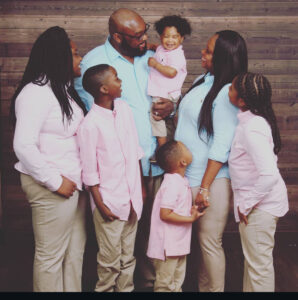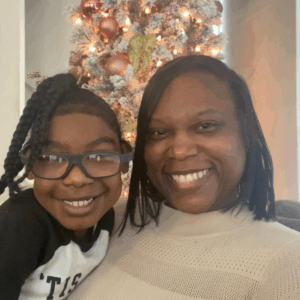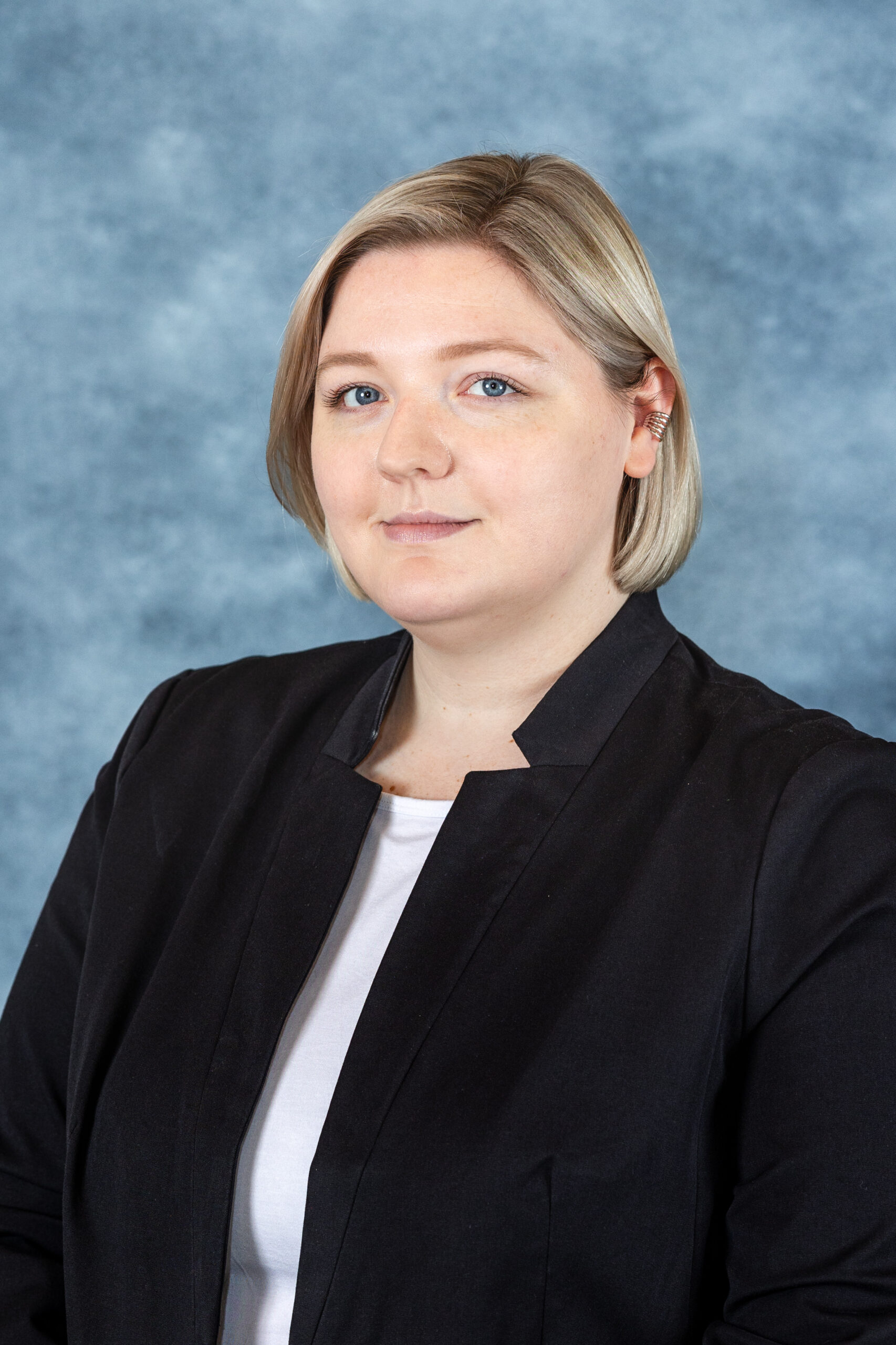Before Dylan was born, Darrisha knew that he might be different. “During a routine prenatal appointment, the doctor told me that my pregnancy was high risk and that there were some issues with Dylan’s development,” says Darrisha Hodges a mother of five and EarlyWell Family Leader. “Dylan’s eyes are different, and he was born deaf and blind, but he always has a smile on his face.”
Initially Darrisha was ashamed of Dylan. “I think a lot of parents in my position had that feeling at some point or another, but it’s something we just don’t talk about a lot.”
 Social isolation and resource gaps contribute to stigma and a lack of visibility around individuals with disabilities. “The reality is that anyone can become disabled, but our culture doesn’t talk about that—so when people see and interact with people with disabilities, we silently brush up against these stigmas without really investigating them. We live in a world where people look down on people with disabilities.”
Social isolation and resource gaps contribute to stigma and a lack of visibility around individuals with disabilities. “The reality is that anyone can become disabled, but our culture doesn’t talk about that—so when people see and interact with people with disabilities, we silently brush up against these stigmas without really investigating them. We live in a world where people look down on people with disabilities.”
Early in Dylan’s life, Darrisha got involved with the Exceptional Children’s Assistance Center (ECAC), where Brittany Cutshaw and Debra Pickens provided critical support to Darrisha throughout her journey as Dylan’s mother. “Dylan is a part of God’s plan, and he filled my spirit, and I was no longer ashamed. I launched into that ‘activist’ role,” says Darrisha. “ECAC provided a lot of support, resources, and education for me as a parent, and it transformed everything about how I show up for Dylan.”
One of Darrisha and Dylan’s favorite activities together is to go to the grocery store. “Dylan sees by touch and smell, and where everywhere else he would get stared at for how he interacted with the world, his way of seeing was a fundamental part of everyone else’s experience at the grocery store,” she says. “Everyone there is touching and smelling produce.”
Aside from the grocery store being a place where Dylan could interact with the world, it also doubled as a classroom. “Dylan’s school told me that they have never seen a student like him and that they didn’t know what to do with him,” says Darrisha. “My son deserves an education, and while his school struggled to provide him with the accommodations he needed, I turned our grocery store into a place where I could teach him things like math, science, and language.”
Like many parents of children with disabilities, Darrisha has a fear of what would happen to Dylan if she wasn’t around. “I want him to be able to navigate the world, and if I wasn’t here, he wouldn’t be able to go to the grocery store.” That prompted Darrisha to reach out to the manager of her local Food Lion in Oxford to make the store more accessible. “You always expect those conversations to be difficult, but the store manager was immediately on board,” she says. “First we worked together to make Braille books that detailed where departments and products could be found in the store.”
During Covid, many grocery stores had signage that designated the separate walking directions of each aisle—but these signs wouldn’t help someone like Dylan. “We worked together to get stickers on the floor that would notify cane users about the walking direction,” she says. “We also wanted to get one of the devices that would actually play a recording that said things like where you were in a grocery store and what items were on a menu.”
 Darrisha says that Dylan wasn’t the only person who needed the Braille maps and the other accessibility features she advocated to be put in her local Food Lion. “Even in a small town like Oxford, there are still people who live with disabilities who will need to go to the grocery store. By making the store more accessible for Dylan, every other person who needs those same accommodations and resources will have access to them,” she says.
Darrisha says that Dylan wasn’t the only person who needed the Braille maps and the other accessibility features she advocated to be put in her local Food Lion. “Even in a small town like Oxford, there are still people who live with disabilities who will need to go to the grocery store. By making the store more accessible for Dylan, every other person who needs those same accommodations and resources will have access to them,” she says.
The Hodges family eventually moved to Mecklenburg, as Darrisha got a new job opportunity and there was a school that would be able to provide Dylan with the resources he needed. After her family made the move to Charlotte, Darrisha reached out to her local Publix. “They’re not only working on providing Braille directories at the three locations we frequent the most, but they are also sending one to Dylan to have at our home,” she says. “This is such a meaningful step, and we are deeply grateful to see Publix making accessibility a priority. This progress means that blind shoppers like Dylan will have greater independence and inclusion, one store at a time. It’s truly a blessing to witness this kind of change unfold.”
Having Dylan as a son changed Darrisha’s life in so many ways. “Between travel and conferences, he’s taken me to so many places I didn’t think see. We’ve even had conversations with a clothing company about how they can make products more accessible to the deaf and blind community,” says Darrisha. “But it just goes to show that whether it’s prayer or peer support, sharing your story with others, or reaching out to your local grocery store, we all have the ability to make positive changes in the lives of others. That what being an advocate is all about.”

